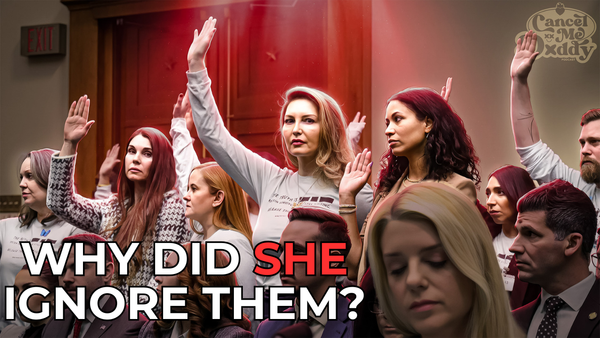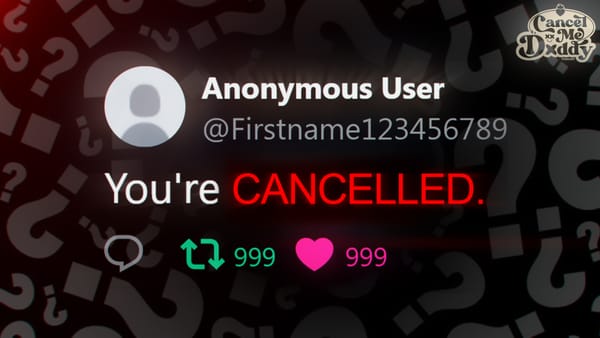Another “cancel culture” non-story is going viral
Twitter is apoplectic that author Lauren Hough had a queer award nomination revoked. But no one knew about the nomination in the first…

Twitter is apoplectic that author Lauren Hough had a queer award nomination revoked. But no one knew about the nomination in the first place.
If there’s one issue that has almost single handedly dominated news paper and publication editorial pages in the early part of this decade, it has to be so-called “cancel culture.” Stories abound all over places like The Atlantic, which seemingly runs multiple cancel culture pieces every week, or The New York Times, which has written 70 cancel culture pieces over the last year according to writer Parker Molloy.
In fact, the Times editorial board ran a wandering mish mash of a piece just last week in which it condemned a new culture in which people actively self-censor to avoid feeling socially shamed. This week brought another escalation to the Times moral panic over cancel culture.
Early Monday, the Times published a piece about a lesbian writer Lauren Hough, who allegedly had a nomination for a Lambda Literary award revoked over tweets in defense of a book written by Hough’s friend, Sandra Newman. I question whether this Twitter dust up is news worthy enough for the Times to begin with, but given the paper’s editorial stance to combat cancel culture, it’s worth some examination.
As with many of these conversations, the views and feelings of marginalized people, in Hough’s case, trans people, are rarely treated as worthy of respect or even listening.
Hough’s story began when her close friend Newman announced her new novel, “The Men.” The story’s premise is a gendercide or gender plague, like Y the Last Man, and several other popular titles released over the last several years, in which some mysterious circumstances result in the mass death or disappearance of an entire gender from Earth.
According to the book’s publisher, in The Men, everyone with a Y chromosome suddenly and mysteriously disappears one day and society is left to deal with the resulting fallout. To trans readers, this type of storyline almost always either forgets about the existence of trans people altogether or deals with trans people in really ham-fisted or sometimes terrible ways.
These books nearly always induce at least a little bit of eye rolling and grumbling on trans Twitter and their initial reaction to “The Men” was no different. Enter Hough, who immediately jumped to her friend’s defense to explain that she had done an early read of Newman’s book and offered tips on how to adjust the story to include trans people in a sensitive way.
She later wrote on her Substack that she was immediately labeled a TERF and excoriated by “YA Twitter” for simply asking trans people to read the book. But the true story played out a bit differently.
One early trans critic, writer Ana Mardoll, made an effort to get an early galley copy of the book for a review, something he’d done for many other books previously. What Ana found while reading was horrifying for his trans Twitter following. In the book, trans women are counted among the titular “men” who are among the disappeared. A trans man who wasn’t disappeared was at one point angrily stripped naked and assaulted by a crowd of cisgender women, in what Newman described as “a kinder world.” Later, some sort of live internet feed is established so that the women on Earth can see what happened to the men. They were transported to a hell like world where they are essentially tortured. Images of trans women in hell are also described.
Mardoll posted his comprehensive review in a series of three Twitter threads, totaling nearly ten thousand words. The fallout from the review has now gone on for about a week, with Hough leading the charge to discredit the trans reviewer. In reaction to critics citing Mardoll’s threads, Hough labeled those disagreeing with her “dumb as fuck,” and claimed that trans people were calling her a TERF as a slur, a well-worn piece of transphobic rhetoric, among other indignant comments. Hough also continuously misgendered Mardoll, essentially labeling him a grifter.
Which brings us to the Lambda Literary awards. Nominations have not been made public, but Hough was apparently already notified of her nomination. No one online or on trans Twitter knew of the nomination. There was no organized call out seeking to have her dropped from the awards. No one asked to pull “The Men” out of print. And yet Hough, and by extension, the Times, portrays this as some sort of a braying mob that got her canceled.
Lambda released a statement to the Times confirming that they had revoked the nomination because of her tweets, but it wasn’t a braying mob of trans people that drove them to that point, as cancel culture critics have rushed to claim. It’s far more likely that a Lambda official saw how Hough was treating her fellow LGBTQ people and decided it didn’t represent the organization’s values. Regardless, Hough isn’t really totally blameless in all of this.
The Hough situation reminds a little bit of the Dave Chappelle situation with Netflix last year. Many trans viewers of his latest special, “The Closer,” took issue with frankly offensive jokes at trans people’s expense. Like the Hough incident, no one asked Netflix to drop Chappelle’s special. A group of trans employees and allies at Netflix staged a walk out demanding that management meet with them to discuss broadening the company’s content offerings to show more portrayals of trans life. The employees who organized the walk out didn’t ask for Chappelle’s special to be dropped either.
In both cases, the trans community was portrayed as an all powerful mob seeking to stamp out dissent through cancellations, when actually it was just a large group of people who were hurting from near constant belittlement and horrific media portrayals.
Perhaps because we’ve become the contrarian political obsession of the moment, but for some reason trans people are constantly accused of trying to cancel speakers, performers, or writers whenever we register a complaint in society.
The internet has been a powerful outlet for trans people to find community and share common experiences since its invention. Along with that, social media has allowed trans people to share their thoughts, feelings, and views with ever-increasing commonality. But along with that, a dedicated backlash has sought to limit and suppress trans voices by painting them as an all powerful mob, or lobby, capable of getting anyone “canceled.” Similar tactics have been used to suppress the speech of other marginalized groups who have similarly found their voices through social media.
As our nation’s institutions continue to grapple with so-called “cancel culture,” we should be aware of the underlying cultural dynamics which previously limited the speech of marginalized groups like trans people. Many of the same dynamics are being replicated in the effort to oppose cancel culture.




